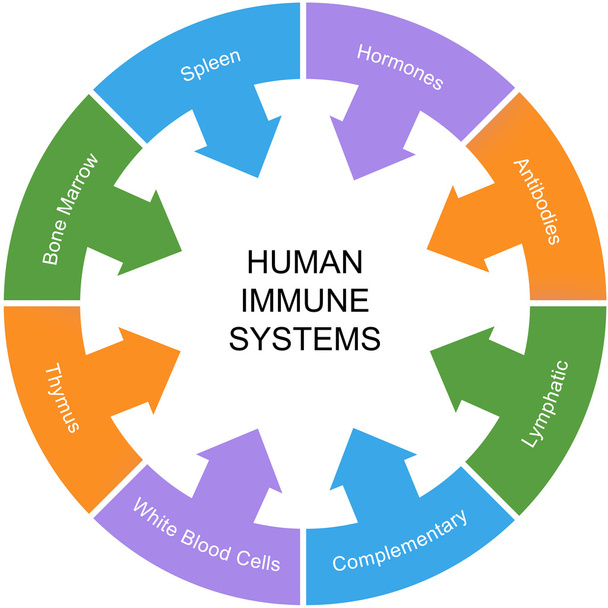Medically Reviewed by:
Name: Ezire Lilian Chinwe
Description: A highly motivated and licensed biomedical scientist with over 7 years of experience, dedicated to advancing healthcare through innovative research and analysis. Expertise includes genetics, microbiology, and immunology with a commitment to staying at the forefront of scientific advancements.
Tips for a Healthy Immune System
At its core, the immune system acts as the body’s strong shield, ready to fend off various potential threats like bacteria, viruses, fungi, and other harmful substances. This complex biological defense mechanism operates with the precise watchfulness of a vigilant guardian, tirelessly working to recognize and neutralize any foreign invaders that could harm the body.
Whether it’s dealing with infectious microorganisms or other harmful elements, the immune system is a sophisticated and highly adaptable network of cells, tissues, and organs, coordinating a smart response to keep the body healthy and balanced.
Components of the Immune System
- White Blood Cells (Leukocytes)
- Spleen
- Bone Marrow
- Lymphatic System
- Thymus
- Tonsils and Adenoids
- Appendix
- Phagocytes (Neutrophils, Macrophages, Dendritic Cells, Monocytes, Mast Cells).
- Lymphocytes (B Cells, T Cells, NK Cells).

1. White Blood Cells (Leukocytes):
White blood cells are the foot soldiers of the immune system, patrolling the blood and lymphatic vessels. Their mission is to actively seek out and neutralize pathogens, acting as the frontline defense against infections.
2. Spleen:
The spleen serves as a vital organ in the immune orchestra. It filters the blood, removing old or damaged blood cells, and acts as a reservoir of immune cells ready to respond to any potential threats.
3. Bone Marrow:
The bone marrow is the birthplace of blood cells, including white blood cells. It continuously churns out these essential immune warriors, ensuring a steady supply to combat infections.
4. Lymphatic System:
The lymphatic system is a network of vessels, nodes, and organs that transports lymph, a fluid containing white blood cells. It plays a pivotal role in immune surveillance and response.
5. Thymus:
The thymus is crucial for the maturation of T cells, a type of lymphocyte. It acts as a training ground, teaching T cells to distinguish between self and non-self, preventing autoimmunity.
6. Tonsils and Adenoids:
Tonsils and adenoids are clusters of lymphoid tissue in the throat. They act as sentinels, trapping pathogens entering through the mouth and nose and initiating an immune response.
7. Appendix:
Long considered a vestigial organ, the appendix has gained recognition for its role in immune function. It may serve as a reservoir for beneficial gut bacteria, contributing to overall immune health.
8. Phagocytes (Neutrophils, Macrophages, Dendritic Cells, Monocytes, Mast Cells):
Phagocytes are the clean-up crew, engulfing and breaking down pathogens. Neutrophils respond rapidly, while macrophages and dendritic cells play roles in presenting antigens to other immune cells.
9. Lymphocytes (B Cells, T Cells, NK Cells):
Lymphocytes are key players in adaptive immunity. B cells produce antibodies, T cells orchestrate immune responses, and Natural Killer (NK) cells target and destroy infected or abnormal cells.
Immune Response Mechanisms
Understanding how the immune system differentiates between healthy tissues and potential threats is crucial. Danger-associated molecular patterns (DAMPs) identify unwanted substances, while pathogen-associated molecular patterns (PAMPs) trigger an immune response upon detecting antigens, whether pathogens or faulty cells.

Types of White Blood Cells
White blood cells, the defenders of our immune system, can be broadly categorized into two main types, each with specific roles:
Phagocytes:
Phagocytes, including neutrophils, macrophages, dendritic cells, monocytes, and mast cells, function as the clean-up crew. They engulf and break down pathogens, contributing to the elimination of threats.
Lymphocytes:
Lymphocytes, comprising B cells, T cells, and NK cells, are key players in adaptive immunity. B cells produce antibodies, T cells orchestrate immune responses, and NK cells target and destroy infected or abnormal cells.

Types of Immunity
The immune system deploys various types of immunity, each serving a unique purpose in defending against threats:
Innate Immunity:
Innate immunity is present from birth and provides immediate, non-specific defense mechanisms against a wide range of pathogens.
Adaptive Immunity:
Adaptive immunity develops over time through exposure to pathogens or vaccinations, creating a targeted and specific defense tailored to the encountered threats.
Passive Immunity:
Passive immunity is acquired from another person or source, such as antibodies passed from mother to child. It provides immediate but temporary protection.
Immunizations
Immunizations are critical for maintaining a robust immune system. By introducing antigens or weakened pathogens, vaccines stimulate antibody production, offering protection against diseases like flu, measles, and more recently, COVID-19.
Immune System Disorders
Understanding immune system disorders is crucial for grasping the importance of immune health. Conditions like immunodeficiencies, autoimmunity, and hypersensitivity can compromise the system, leading to increased susceptibility to infections or autoimmune diseases.
Impact of Lifestyle on Immune Response
Daily choices significantly influence the immune system. Factors such as diet, exercise, sleep, and stress management play crucial roles. Consuming a balanced diet, engaging in regular physical activity, ensuring adequate sleep, and managing stress contribute to overall good health.
Specifics on Diet and Exercise
Certain nutrients, such as vitamins A, C, D, and minerals like zinc, are vital for immune function. Regular physical activity not only supports efficient blood circulation but also facilitates the movement of immune cells throughout the body.

Monitoring Immune System in the Brain
Recent research has uncovered immune cells stationed in the dura mater, monitoring cerebrospinal fluid for signs of infection. This discovery opens new avenues for understanding the relationship between the immune system and brain health, offering potential insights into brain-related diseases.
Conclusion
Maintaining a healthy immune system is a lifelong commitment requiring attention to various aspects of our lives. By understanding the intricate mechanisms and making informed lifestyle choices, we empower ourselves to fortify this essential defense mechanism. Regular immunizations, a nutritious diet, consistent exercise, and effective stress management are crucial elements. For those with weakened immune systems, seeking medical advice and adopting tailored strategies becomes paramount. The key to a resilient immune system lies in the synergy of informed choices, medical guidance, and a commitment to overall well-being.
Frequently Asked Questions
What role do immunizations play in maintaining a healthy immune system?
Immunizations stimulate antibody production, providing protection against various diseases.
How does lifestyle impact immune response?
Lifestyle choices such as diet, exercise, sleep, and stress management significantly influence immune system performance.
Can specific nutrients enhance immune function?
Yes, nutrients like vitamins A, C, D, and minerals such as zinc are crucial for immune health.
What are the types of immunity deployed by the immune system?
The immune system uses innate immunity, adaptive immunity, and passive immunity to defend against threats.
Why is monitoring the immune system in the brain important?
Monitoring immune activity in the brain provides insights into the relationship between the immune system and brain health.
Sources:
Havard Health www.health.harvard.edu/staying-healthy/how-to-boost-your-immune-system
Healthline www.healthline.com/nutrition/how-to-boost-immune-health
Centers For Disease Control and Prevention (CDC) www.cdc.gov/nccdphp/dnpao/features/enhance-immunity/index.html
Medically Reviewed by:
Name: Ezire Lilian Chinwe
Description: A highly motivated and licensed biomedical scientist with over 7 years of experience, dedicated to advancing healthcare through innovative research and analysis. Expertise includes genetics, microbiology, and immunology with a commitment to staying at the forefront of scientific advancements.








